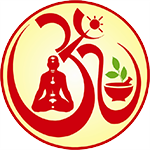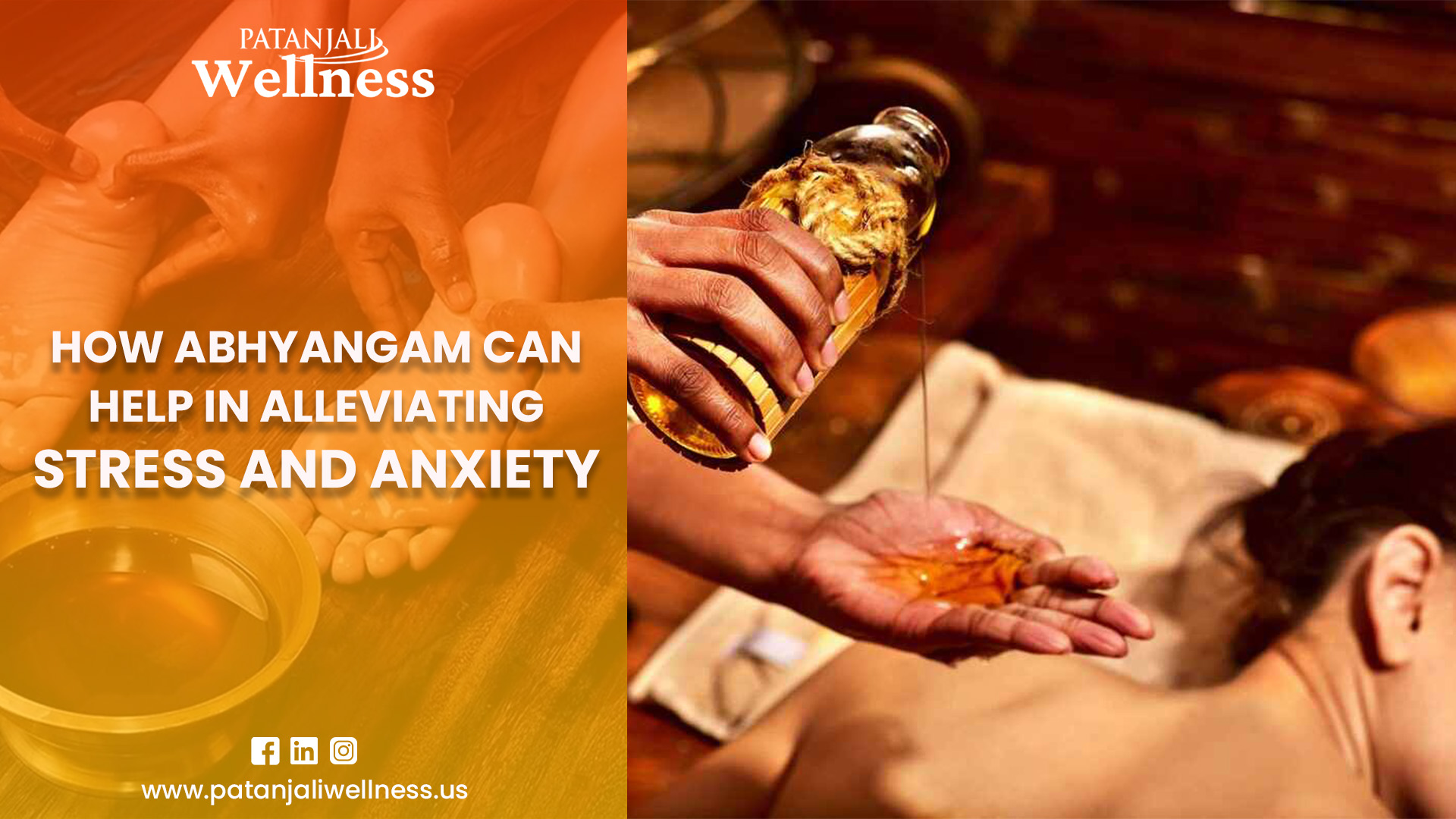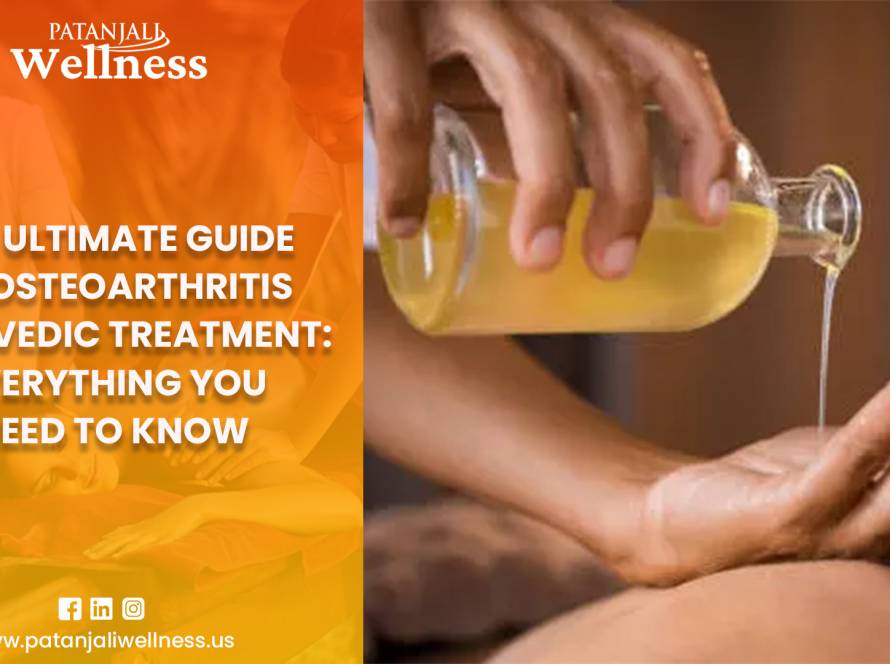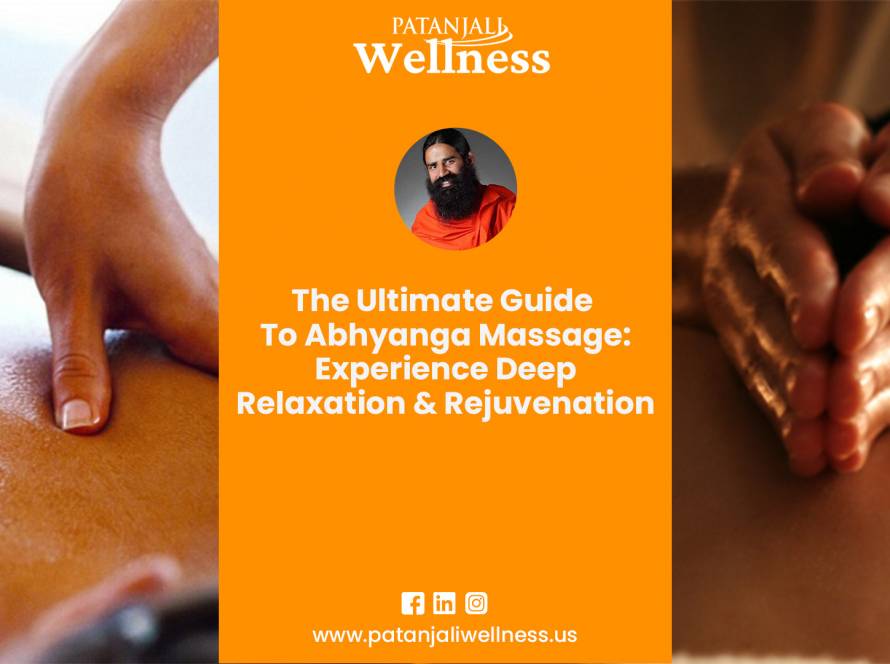In today’s fast-moving world, stress and anxiety have become the most common problems for many across the globe. Daily work, responsibilities, and life pressure can impact a person’s mental and physical health. So what’s the solution? Well, there are ample solutions, but which is suitable matters most. An ancient practice called Abhyangam offers a potential solution.
Abhyangam comes from the traditions of Ayurveda and has been used for centuries to promote well-being. This blog will explore how Abhyangam can help you control and lower stress and anxiety, giving you peace and balance amid your busy lives.
Understanding Stress and Anxiety
Stress and anxiety are two commonly used terms, often interchangeably, but they represent distinct emotional and physiological responses:
Stress is your body’s natural reaction to a perceived threat or challenge. It triggers the “fight or flight” response, releasing hormones like cortisol and adrenaline. While a manageable stress level can motivate, chronic or excessive stress can lead to health problems.
On the other hand, anxiety is a specific type of stress characterized by excessive worry, fear, or unease about future events or situations. Unlike regular stress, anxiety often lacks a clear cause and can be more persistent.
Causes and Impact of Stress and Anxiety on Mental and Physical Health
Causes of Stress and Anxiety: Stress can arise from various sources, including work pressure, financial worries, relationship issues, or significant changes like moving or loss. Anxiety can manifest without an identifiable cause, leading to generalized anxiety disorder (GAD) or specific phobias.
Impact on Mental Health: Persistent stress and anxiety can affect mental health. They may lead to irritability, difficulty concentrating, insomnia, and even depression or panic disorders. These conditions can significantly impact one’s overall quality of life.
Impact on Physical Health: The effects of stress and anxiety aren’t limited to the mind; they can also affect the body. Chronic stress can contribute to cardiovascular problems, weakened immune function, digestive issues, and an increased risk of chronic diseases like diabetes.
Importance of Addressing These Issues
Recognizing and addressing stress and anxiety is crucial for several reasons:
Quality of Life: Constant stress and anxiety can make daily life difficult. Addressing these issues can significantly improve well-being, mood, and happiness.
Prevention: Chronic stress and anxiety can contribute to developing more severe mental health conditions. Early intervention and management can prevent the escalation of these problems.
Physical Health: Managing stress and anxiety can also positively affect physical health. Reducing stress levels can lower the risk of developing related health issues.
Productivity and Relationships: High stress and anxiety levels can hinder productivity at work and strain personal relationships. Addressing these issues can improve both professional and emotional aspects of life.
In the following sections, we’ll explore how Abhyangam, an ancient practice rooted in Ayurveda, can be a valuable tool in managing and alleviating stress and anxiety, promoting holistic well-being.
What is Abhyangam?
Abhyangam is a traditional Ayurvedic practice that involves a self-body massage using warm herbal oils. Its roots can be traced back thousands of years to ancient India, where it was considered a sacred and essential element of the Ayurvedic healing system.
In Sanskrit, “Abhyanga” means oil massage, and “Abhyangam” refers to performing this therapeutic massage. Ayurveda, the ancient Indian system of medicine, recognizes the profound connection between the mind, body, and spirit, and Abhyangam is one of the ways it addresses physical and mental well-being.
Principles and Techniques Involved
Abhyangam is based on several key principles:
Dosha Balance: Central to Ayurveda is the concept of doshas—Vata, Pitta, and Kapha—representing different combinations of elements and energies within the body. Abhyangam is tailored to individual constitutions to balance these doshas.
Stimulation of Marma Points: Abhyangam often incorporates the stimulation of marma points, which are specific energy points in the body, similar to acupuncture points in traditional Chinese medicine. Massaging these points can release blocked energy and promote balance.
Warm Herbal Oils: Warm herbal oils are the cornerstone of Abhyangam. These oils are chosen based on the individual’s constitution and specific health concerns. The oils penetrate the skin, nourishing tissues and promoting relaxation.
The techniques involved in Abhyangam are characterized by gentle and rhythmic strokes. The massage covers the entire body, from head to toe, with extra attention to subjective areas where stress accumulates, such as the neck, shoulders, and lower back.
Significance of Ayurveda in Abhyangam
Ayurveda plays a pivotal role in Abhyangam for several reasons:
Holistic Healing: Ayurveda considers the body as a whole, and Abhyangam embodies this holistic approach. It doesn’t just focus on physical ailments but also addresses the mind and spirit.
Dosha Balancing: Ayurveda’s deep understanding of doshas allows for personalized Abhyangam therapy. By unique massage techniques to an individual’s dosha imbalance, Ayurveda aims to restore harmony within the body.
Natural Healing: Ayurveda promotes using natural herbal remedies, reflected in the choice of warm herbal oils used in Abhyangam. These oils not only nurture the skin but also provide therapeutic benefits.
In the upcoming sections, we will explore how Abhyangam’s unique principles and techniques make it a potent tool for alleviating stress and anxiety, bringing harmony to both body and mind.
How Abhyangam Alleviates Stress and Anxiety
Abhyangam, the ancient practice of Ayurvedic oil massage, promises profound relief from the burdens of stress and anxiety. Let’s delve into how this therapeutic practice works its magic, offering a holistic approach to well-being.
Physical Benefits
Relaxation of Muscles and Tension Release: Abhyangam is like a gentle embrace for your muscles. As warm herbal oils knead and stroke your body, tension melts away. The soothing touch of Abhyangam encourages tight muscles to unwind, providing immediate physical relaxation.
Improves Blood Circulation and Oxygenation: The rhythmic strokes of Abhyangam stimulate blood flow, ensuring that every nook and cranny of your body receives the nourishment it needs. Enhanced circulation promotes the delivery of oxygen and nutrients to cells, which can leave you feeling revitalized and energized.
Reduction of Cortisol Levels: Abhyangam’s ability to reduce cortisol levels is particularly significant. Cortisol is the body’s primary stress hormone, and chronically elevated levels can lead to various health problems. Through the calming effects of massage, Abhyangam can help lower cortisol production, easing the physiological impact of stress.
Mental and Emotional Benefits
Calming Effect on the Mind: Abhyangam is more than just a physical experience; it’s a journey of the mind. As your body unwinds, so does your mind. The gentle, repetitive motions of the massage encourage mental relaxation, making it an effective tool for calming racing thoughts.
Enhanced Mood and Emotional Balance: Abhyangam remarkably impacts mood regulation. It promotes the release of feel-good hormones like serotonin and dopamine, fostering a sense of well-being and emotional balance. This uplifted mood can provide respite from the heavy burden of anxiety.
Stress Reduction Through Mindfulness: Receiving an Abhyangam massage encourages mindfulness, a practice renowned for its stress-reducing benefits. As you focus on the sensations and the rhythm of the massage, you naturally enter a meditative state, reducing mental chatter and stress.
Holistic Approach
Balancing of Doshas in Ayurveda: Abhyangam is a personalized practice that can be tailored to your specific dosha constitution. Addressing dosha imbalances helps restore harmony to your body and mind. For example, a Vata-pacifying Abhyangam might calm an anxious mind, while Pitta-balancing therapies could cool emotional heat.
Promotion of Overall Well-being: Abhyangam is not just about managing symptoms; it’s about promoting holistic well-being. It nourishes the skin, supports detoxification, enhances immune function, and profoundly relaxes you. This comprehensive approach contributes to a sense of vitality and overall health.
Conclusion
In this blog, we’ve explored the profound benefits of Abhyangam, an Ayurvedic therapy in Houston, in alleviating stress and anxiety. Abhyangam offers physical relief through muscle relaxation, improved circulation, and cortisol reduction. It also calms the mind, enhances mood, and promotes mindfulness, making it a valuable part of Panchakarma treatment in Houston.
As you seek a path to well-being, consider Abhyangam’s ancient wisdom. It’s a practice that transcends time, offering a sanctuary of tranquility. Whether through professional therapists or self-care, Abhyangam can be your gateway to a more peaceful, balanced life. Embrace its healing touch, and may your journey towards a stress-free, anxiety-free life be filled with health and happiness.





